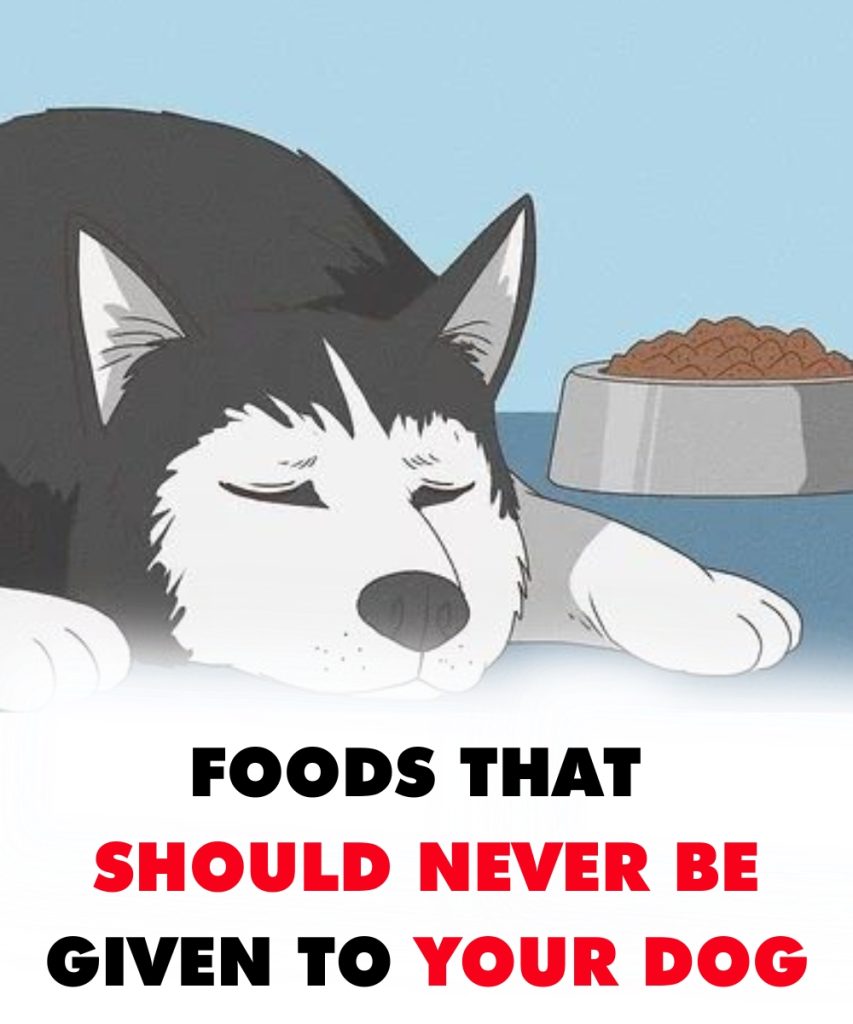We all know our dogs are more than just pets—they’re family. Whether they’re greeting us at the door with wagging tails or snuggling up on the couch, our dogs give us unconditional love and joy. Naturally, we want to show them the same affection, often by sharing some of our food. But did you know that certain human foods are not only harmful but can be downright deadly for your canine companion?
In this article, we’ll reveal 22 foods that can be hazardous to dogs and explain why you should avoid feeding them to your furry friend.
1. Chocolate: A Sweet Treat That Can Turn Sour
Chocolate contains theobromine and caffeine, both of which are highly toxic to dogs. Even a small amount can lead to vomiting, diarrhea, rapid heart rate, and, in extreme cases, seizures or death. The darker the chocolate, the worse it is.
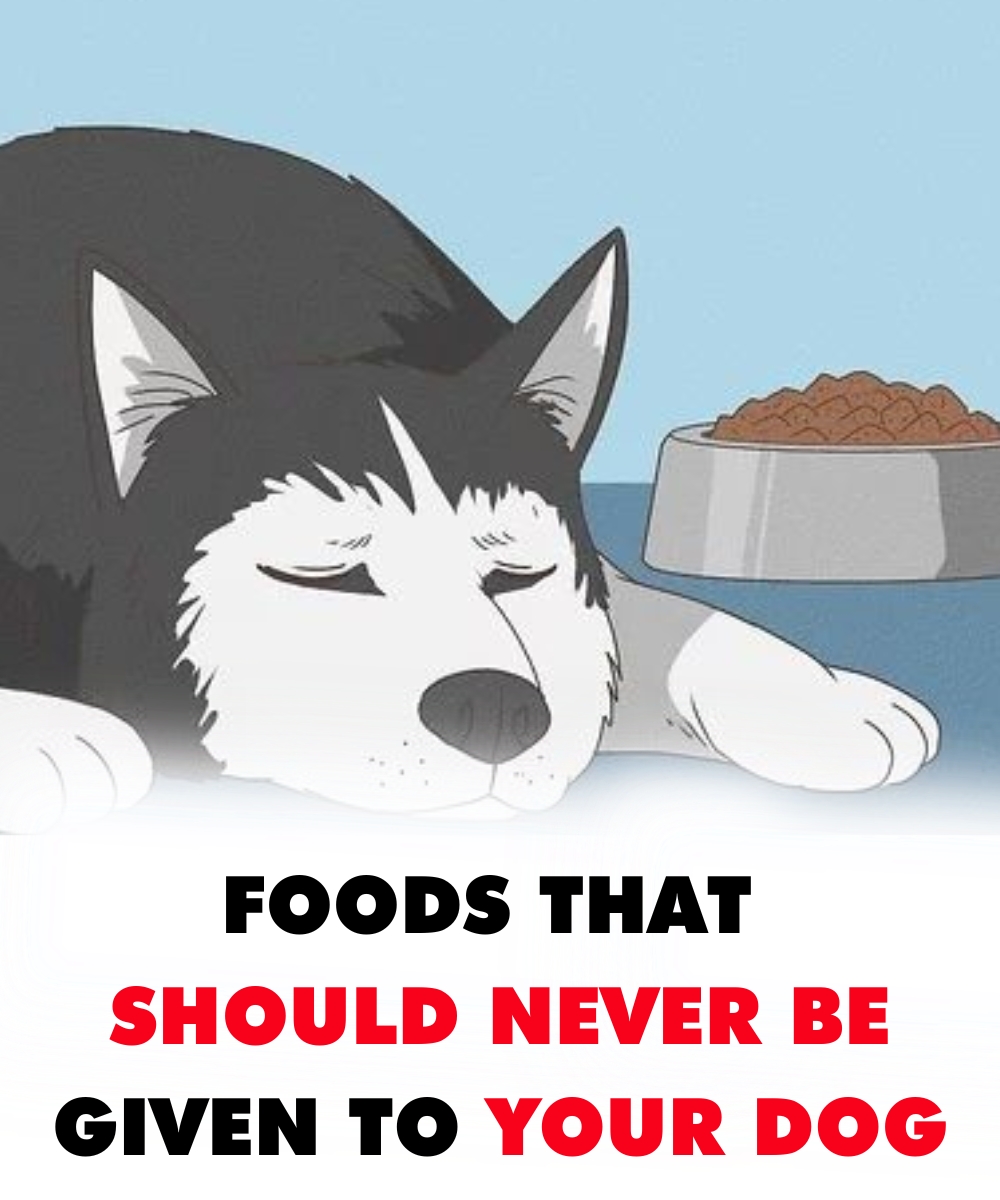
2. Grapes and Raisins: Tiny Yet Potent
Even a small handful of grapes or raisins can cause kidney failure in dogs. While the exact cause is unknown, the effects are devastating, and it can take just one or two to be fatal.
3. Onions and Garlic: Tiny Bulbs, Big Trouble
These kitchen staples contain compounds that can damage a dog’s red blood cells, causing hemolytic anemia. Symptoms include lethargy, weakness, and pale gums. Long-term exposure can lead to severe health issues.
4. Avocado: More Than Just a Superfood for Humans
While avocado is great for us, its flesh contains persin, a toxin that can cause digestive distress, respiratory problems, and even heart failure in dogs. Keep those avocado slices to yourself!
5. Alcohol: A Sip Could Lead to a Serious Health Crisis
Even the tiniest amount of alcohol can lead to neurological problems, vomiting, diarrhea, and, in extreme cases, coma or death. So, keep the drinks away from your dog at all costs!
6. Caffeine: Buzzing Isn’t Always Fun for Dogs
Found in coffee, tea, sodas, and energy drinks, caffeine can elevate your dog’s heart rate and cause seizures. Keep caffeinated beverages out of reach, especially during the holiday season when treats may be left unattended.
7. Cooked Bones: A Dangerous Crunch
While raw bones may be safe in some cases, cooked bones pose a major risk. They can splinter, causing obstructions or even puncturing the digestive tract. Don’t let your dog munch on that leftover chicken wing!
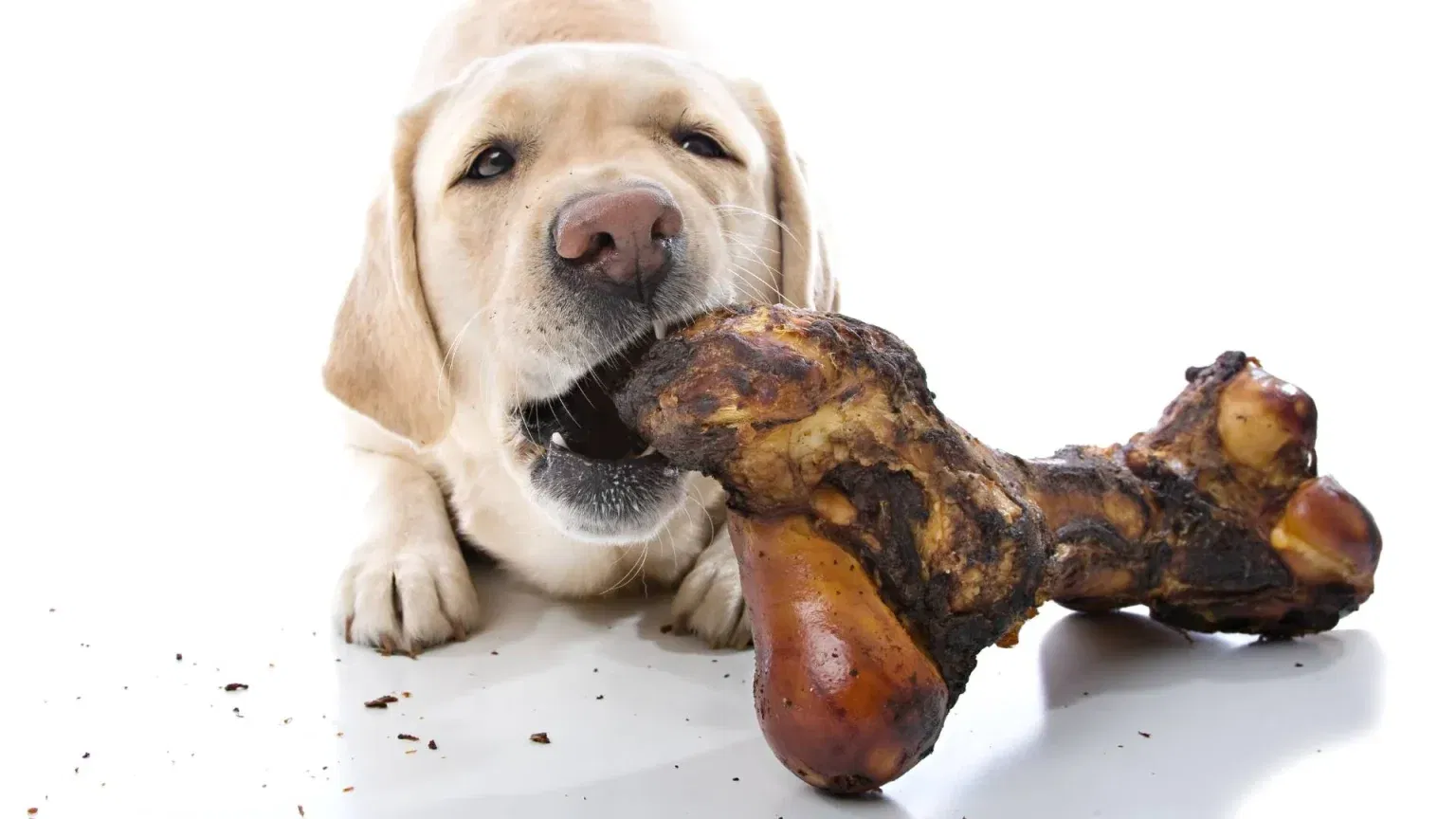
8. Xylitol: The Silent Killer in Sugar-Free Treats
Xylitol, an artificial sweetener found in sugar-free gum and some baked goods, can cause a dangerous drop in blood sugar and liver failure. It’s one of the sneakiest dangers, so always read labels carefully.
9. Milk and Dairy Products: Not So Easy on the Stomach
Many dogs are lactose intolerant, which means consuming milk or dairy products can lead to digestive upset, including diarrhea and stomach cramps. It’s best to skip the ice cream for your pup.
10. Raw Bread Dough: A Recipe for Disaster
The yeast in raw bread dough can expand in your dog’s stomach, causing bloating, gas, and even a twisted stomach (bloat), a condition that requires immediate medical attention.
11. Stone Fruits (Peach, Plum, Cherry): The Hidden Danger Inside
While the fruit itself may seem safe, the pits or stones contain cyanide, which is toxic to dogs. Additionally, they can cause intestinal blockages if ingested.
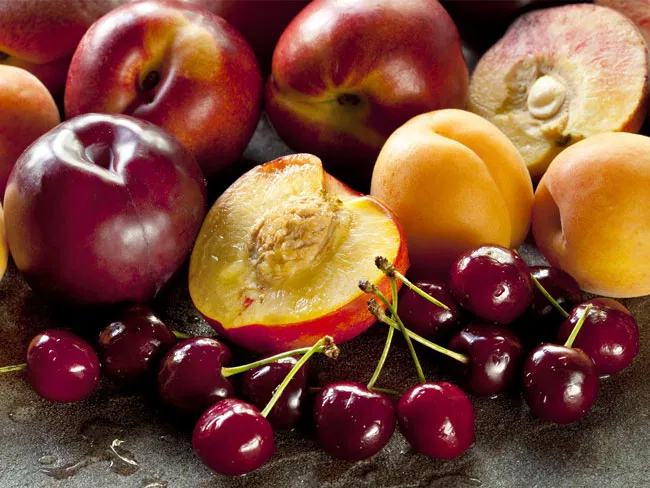
12. Green Tomatoes and Tomato Leaves: Not All Parts Are Safe
While ripe tomatoes are fine in moderation, the green parts of the plant, including leaves and stems, contain solanine, a substance that can cause digestive issues and neurological problems in dogs.
13. Wild Mushrooms: A Hidden Threat
Not all mushrooms are created equal. Some wild mushrooms are highly toxic to dogs and can affect the liver and nervous system. Never let your dog roam unsupervised where mushrooms grow!
14. Macadamia Nuts: A Nutty Problem
Macadamia nuts are especially harmful to dogs, causing symptoms like vomiting, tremors, weakness, and muscle stiffness. Avoid any cookies or candies containing these nuts.
15. Raw Fish: A Finned Danger
Raw fish can contain harmful parasites and bacteria that can cause digestive issues or illness in dogs. While some fish are safe when cooked, raw fish should be off the menu for your pup.
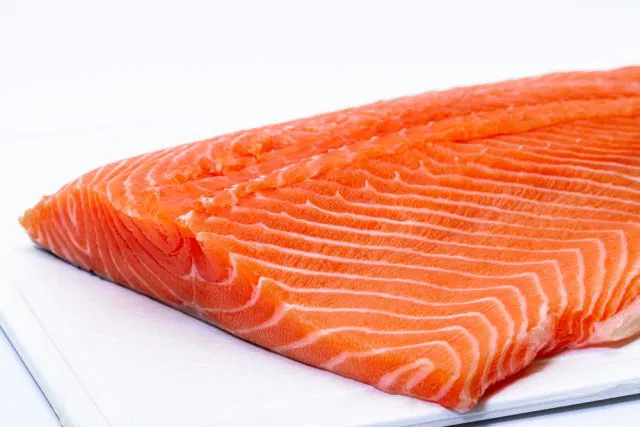
16. Salt: The Salty Side of Life
Excess salt consumption can lead to sodium poisoning, causing symptoms like excessive thirst, vomiting, seizures, and even kidney damage. Always keep salty snacks out of your dog’s reach.
17. Fried and Greasy Foods: A Recipe for Pancreatitis
The fatty oils and grease in fried foods can trigger pancreatitis, a painful and potentially life-threatening inflammation of the pancreas. Stick to fresh, nutritious meals for your dog.
18. Spicy and Hot Foods: Not a Fan of Spice
Dogs’ stomachs aren’t built to handle spicy food. Hot peppers and spicy condiments can cause digestive distress, discomfort, and even stomach ulcers. Keep the salsa to yourself!
19. Excessive Liver: A Little Goes a Long Way
While liver is a nutritious treat in moderation, excessive amounts can lead to vitamin A toxicity. This condition can cause joint pain, bone deformities, and muscle weakness.
20. Apple Seeds: Tiny But Toxic
Apple seeds contain cyanide, a highly toxic substance. While the fruit itself is safe in moderation, be sure to remove the seeds before giving your dog a slice of apple.
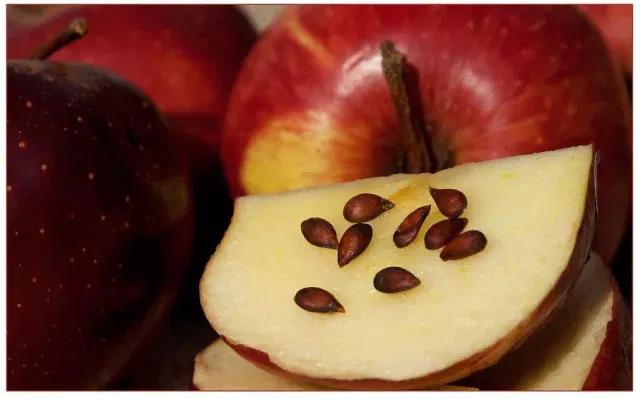
21. Sugary Drinks: Sweet for Us, Harmful for Dogs
Sugary drinks can contribute to obesity, diabetes, and dental problems in dogs. Keep your dog away from sodas, energy drinks, and sugary juices to protect their health.
22. Raw Potatoes and Green Potato Skin: A Root With Risk
Raw potatoes and their green skin contain solanine, a toxin that can cause vomiting, diarrhea, and neurological issues. Never give your dog uncooked potato!
What to Do If Your Dog Eats Dangerous Food
If you suspect your dog has eaten any of these harmful foods, contact your veterinarian immediately. The quicker you act, the better the chances of preventing severe illness or even death. Don’t wait for symptoms to show—be proactive about your dog’s safety!
While it’s natural to want to share your food with your four-legged family member, it’s important to be aware of what foods are safe for them. Keeping dangerous foods out of reach and offering a balanced, dog-friendly diet will help ensure your pet stays healthy and happy for years to come. Always consult with your vet before introducing any new foods, and keep those harmful treats out of their paws!


